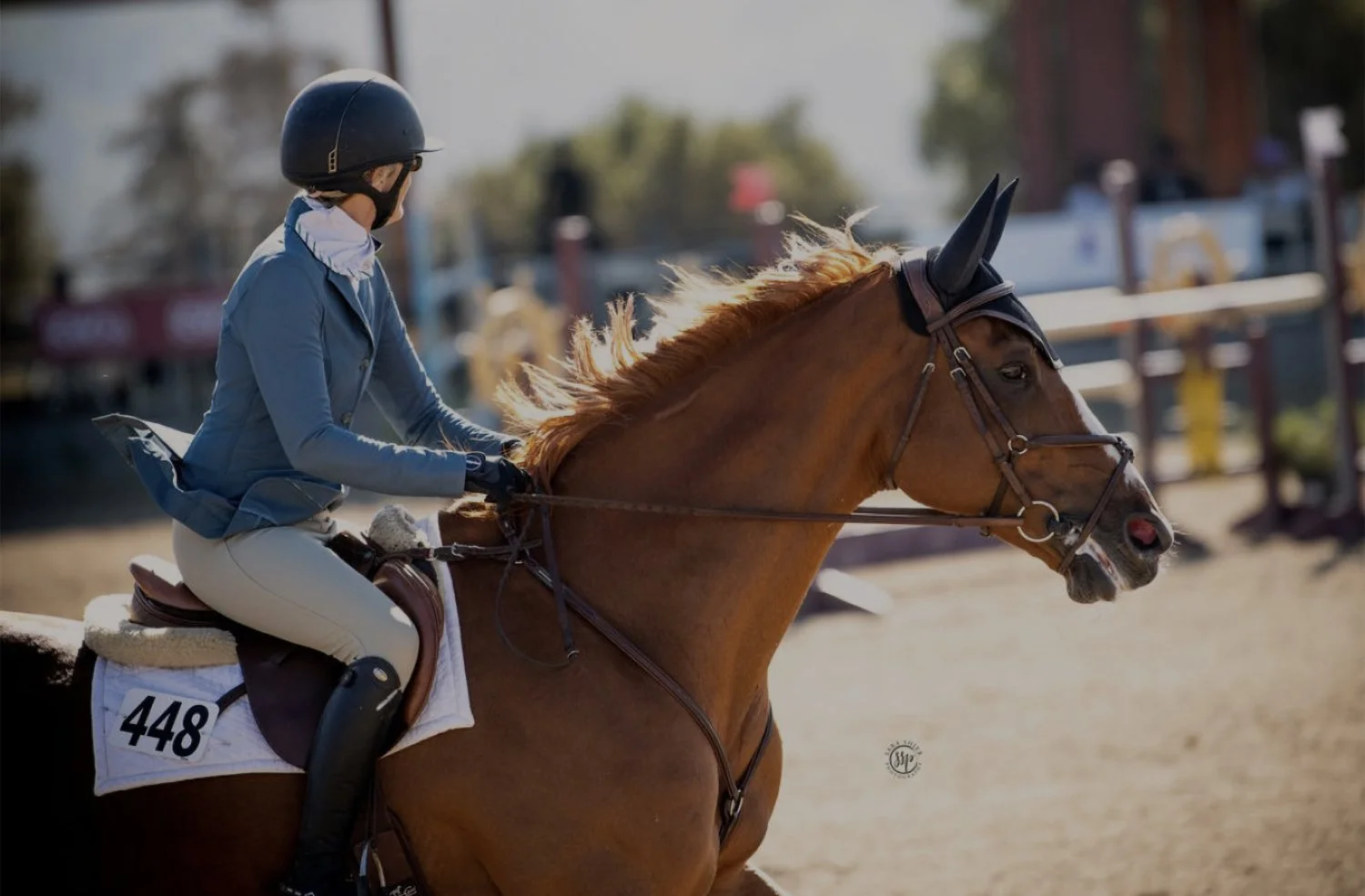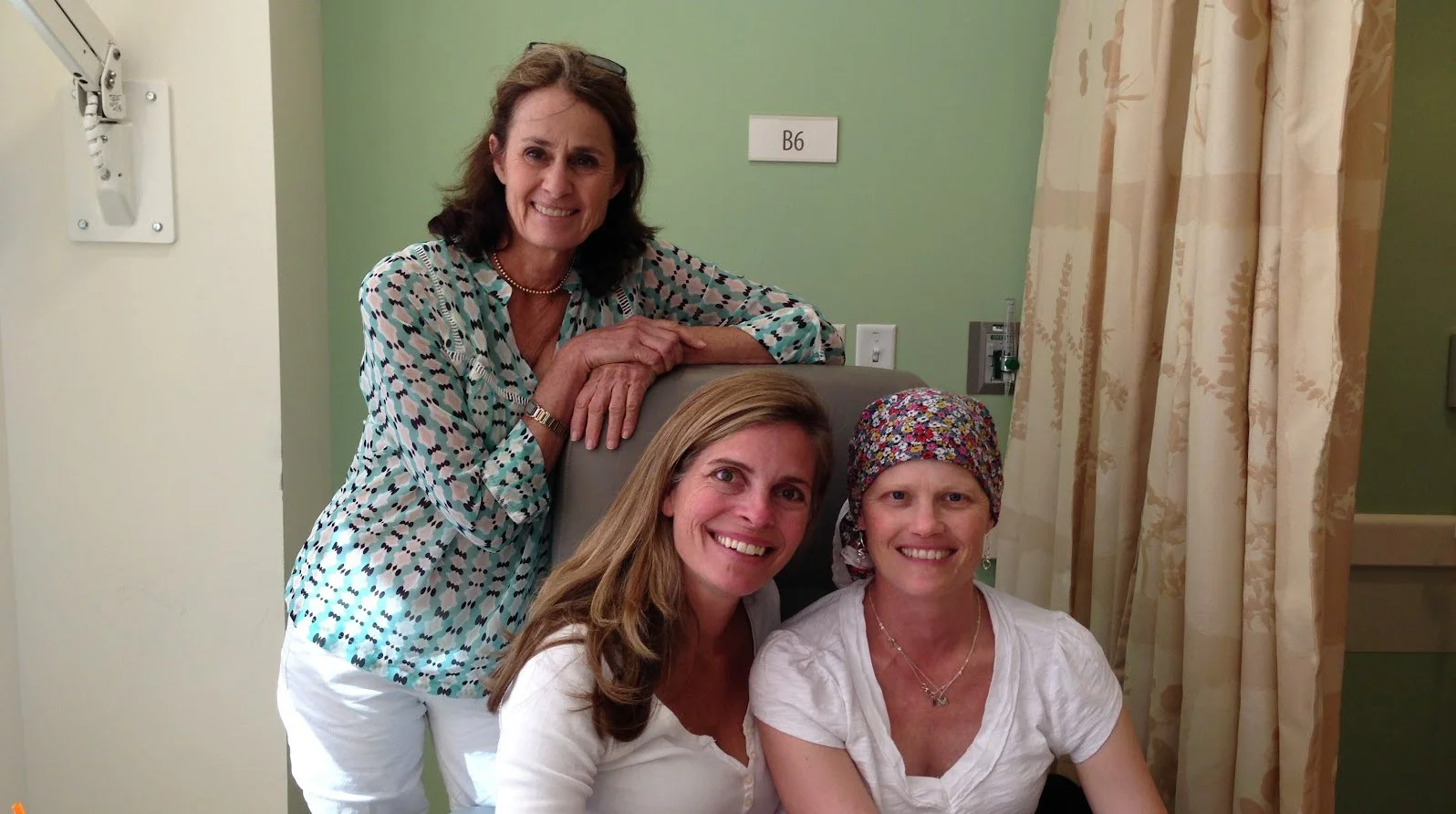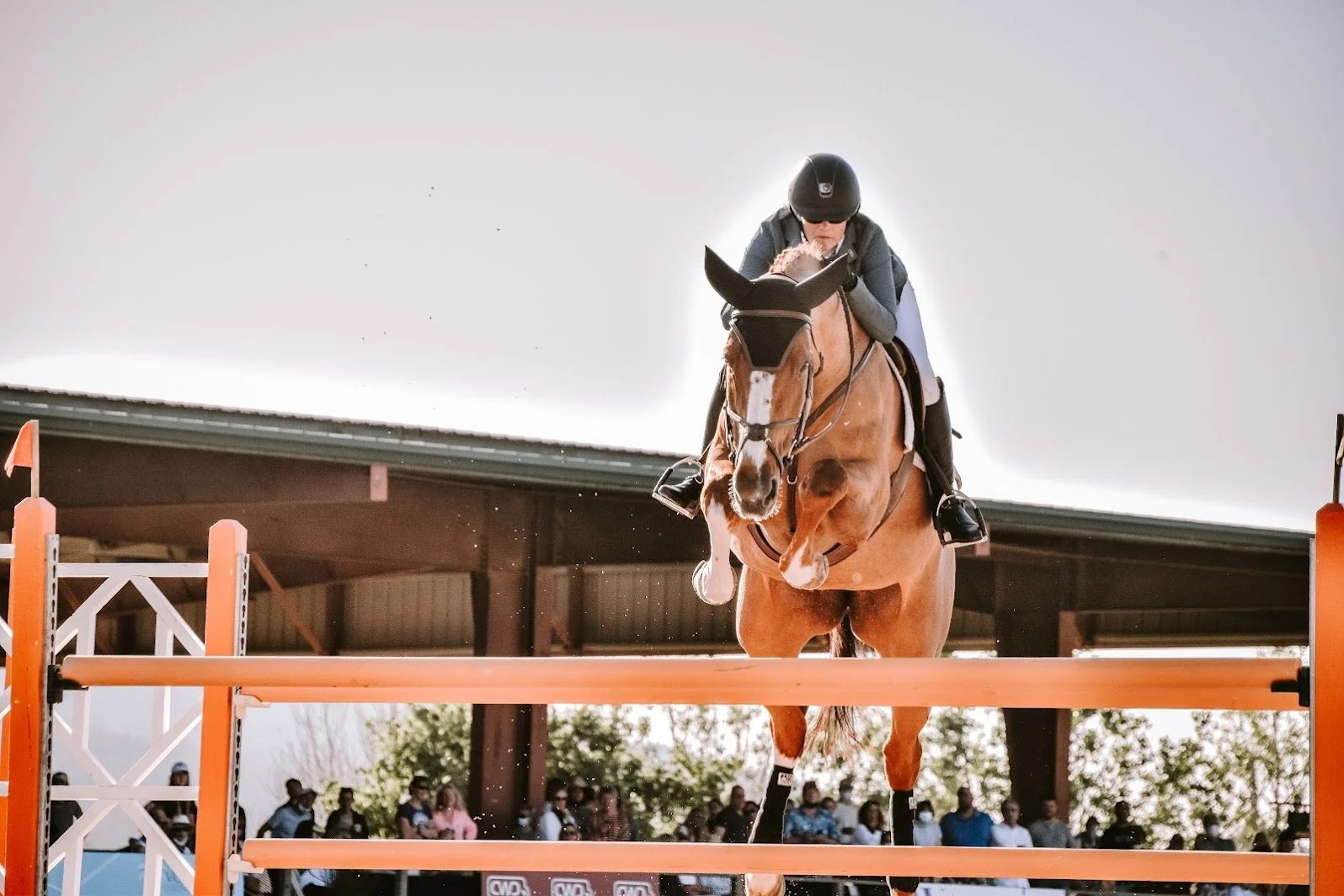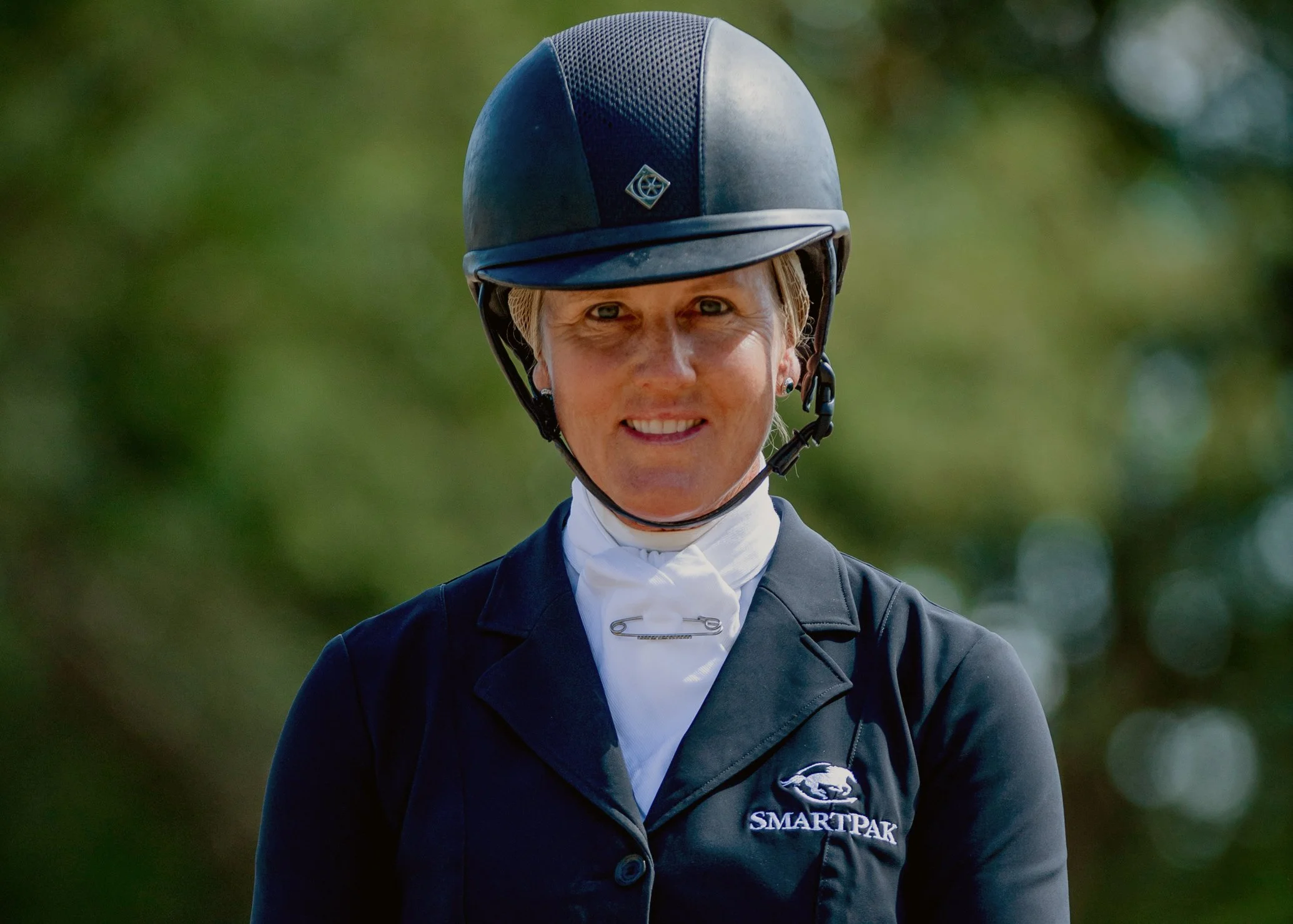
Kristin Crosland: “I don’t think I would be alive without horses. Full stop.”
By Kristin Crosland | Oct 2, 2025
It started with a ski trip over Christmas in 2012. I hadn’t skied in many years, but afterward, I noticed I was having chest pain. I thought, Well, I guess my muscles are sore—I’m out of practice.
After I got home, though, it persisted. I went to the doctor several times and they guessed that it was the cartilage in my chest. So rest it. But the pain just increased and increased. It got to the point where I couldn’t lift a plate without severe pain in my chest.
I had a pretty intense job as a chief operating officer of a professional services firm for medical devices and digital health at the time. I went to the owners of the firm and said, “My chest is really bothering me.” They told me to go to the ER.
Within a few days, I learned that I had Stage 4 breast cancer. I was 40 years old.
The reason I had been in so much pain was that in addition to having a giant tumor in my left breast, cancer had moved into the bone; it had killed the cells, creating a significant hole in my sternum. And it was huge tumor. It’s shocking that I didn’t notice it, but that’s not uncommon in cases like mine. I have super fibrous dense tissue in my breasts, so it’s hard to detect anything in routine physical exams. Even on a mammogram, early-stage tumors can be really hard to pick up in dense tissue. Nowadays, they frequently do MRI imaging for women like me.
Breast self-exams are very important to do, and let me be the first to say, I did not do a good job of that. Maybe if I had done that more religiously, I would have caught it earlier—maybe not. If you have really dense tissue, it’s harder to palpate anything. The fact that the tumor had moved into the bone was what caused me so much pain, and therefore it’s actually how they discovered my disease.
That started me down the road of cancer care.
I was profoundly fortunate that I had a friend who understood the importance of getting leading-edge care. She pushed me to do that. I was also lucky to live in an area with two comprehensive cancer care centers: Stanford University and the University of California San Francisco.
If you know anything about cancer, you learn quickly that it really should be the plural word, cancers. Because even within breast cancer, there are so many different ways that the disease can develop, present and respond to treatment, so a range of different therapies is required. In my case, having an oncologist who really understood my subset of the disease and was a global expert gave me an opportunity that not everybody gets.
But even with access to the best of the best care, the prognosis was grim.
I had an aggressive cancer, and it had already spread to other parts of my body. They said I’d have two to five years—maybe seven on the upside—with a very aggressive treatment regimen. The best they could hope for was to help keep my cancer quiet and contained.
Talk about falling off a cliff.
***
I’ve always been a person who takes good care of my health. I eat well. I exercise a lot. I don’t smoke. I don’t drink. I honestly assumed that the chest pain I was initially feeling was a sports injury, because I’m extremely active. I was truly blindsided.
Those early days were a very dark time.
I’m a glass-half-full optimist, a “let’s go!” kind of person. I had a great support system between my husband, my family, and my close friends—they were like, “You can do this.” But it was a tough choice. The only options I had were to go really big with the treatment, or to accept that I was going to die much sooner than I ever imagined.
I ultimately decided for myself. I think that’s critical. Each patient needs to decide and I decided I wanted to do it.
But that meant I was in for a rough, rough road treatment-wise.
The oncologist said to me, “I’m going to nearly kill you to try to help you. This is going to be a rough year. Buckle up and be ready.”
He did not exaggerate. With advanced cancer like mine, there’s a constant dance between treating the cancer and the collateral consequences.
To treat my cancer, they did two different things that first horrible year.
One is called “dose-dense therapy,” which means instead of getting the drugs on the cycle that it’s labeled for, they compress the timeline to as much as you can tolerate. Say, every two weeks instead of every four.
They also do a thing called ‘maximum tolerable dose,’ where the drugs are no longer titrated to your weight, and instead are dosed as much as you can stand. The only way they can determine ‘how much you can stand’ is to wait until you start to break down, past the point that you’re tolerating it.
After the worst of the chemotherapy regimen, I moved to targeted therapy drugs every three weeks. I’ve been on these drugs for 12 years now, but they’ve had to spread out my treatment cycles to every six weeks in more recent times as my body wasn’t holding up well. The drugs are cardiotoxic, which means they’re rough on your heart, and they’re also difficult for your liver to process. For as long as you’re in treatment, the doctors have to monitor you all the time to ensure you’re at a dosage level that your body can tolerate.
Early on in my treatment, I was admitted to the ICU three times.
The first time, I got a massive blood clot from my port (port-a-cath). In order to get the volume of drugs that I was getting, I had a surgically implanted port they could administer the drugs through, because my peripheral veins could never tolerate those medications. The clot was so large, I got a pulmonary embolism from it—a little piece of the clot went into my lung. It was scary—‘PEs,’ as they’re called, can be fatal.
The second time was after my radical mastectomy. Because I was on drugs to prevent another blood clot, I had a serious internal bleed. That was the scariest one of all.
That night, I was in the ICU. I had become used to hearing the alarms for a ‘code blue’ when someone crashes. You hear the rush of feet, and people running in to help. Obviously, it’s a frightening, intense environment.
At one point in the night, I heard the alarm for a code blue, and then all the pattering of feet. And all of a sudden, the people came running into my room. I had no idea it was me, but my blood pressure had gotten so low because of the internal bleed that it had triggered the alarm. There’s a function in the ICU beds that allows them to quickly release and flip upside down, because when your blood pressure is that low, they need to get the blood going to your brain. So, I was literally upside down, and they shoved this giant shunt into my femoral vein to get blood into me for a transfusion. I turned to the closest guy working on me, and asked, “What is happening?”
And he leaned over the bed and said, “How are you still conscious?!”
The third time was another blood clot related to the drugs, but this time everything went up into my face. My whole face blew up like the Elephant Man.
I was profoundly fortunate, despite all these things happening, that my body actually responded really well to the cancer drugs. That’s something no can tell you, because you can’t predict at the outset how your body will respond.
***
Early in my treatment I did the bucket list thing. I started asking myself, if I have this much time what do I want to do? Where do I want to go? What do I want to see?
But that ended up being a fleeting thing.
I course-corrected really quickly, because I recognized that what matters—the only thing that matters—is what you do with the people that you care about. I wanted to spend time with people that I value, and to let them know how much I value them.
“What matters—the only thing that matters—is what you do with people that you care about.”
And, for me, it was about the animals I cared for as well.
Horses have always been how I learn to breathe. When I was a tiny child, I would get nervous, and hold my breath. But you can’t hold your breath on a horse. They force me to breathe in that deep way where everything else goes away. I don’t think about other things when I’m with horses. I don’t process life’s traumas or drama or fear or pain. I’m just with the horse. The moment I swing a leg over and I feel that sort of yummy looseness in their body, I’m just in.
So, it probably shouldn’t have come as a surprise to anyone that when I eventually reached a point in my treatment where I was coming out of the worst phase, and the weight and the exhaustion had ebbed, the first thing I wanted to do was ride.
My doctors were like, “No way are you getting on a horse.”
I told them that I actually needed to be on a horse more than I needed the drugs I was on. I pushed it because it meant so much to me.
My trainers and I picked a horse that we thought would be the safest—we were all clear that was definitely not going to be my horse—and my trainer said, “Okay, so you’re going to walk in this circle right around me.”
I did that, and then I said, “I’m just going to try to trot a little bit,” even though I knew he was thinking, Oh my God.
And then I gave him the ‘tiny’ sign and told him, “I’m going to do this much canter!”
He told me no, but I cantered just a little bit anyway, and then I got off and put the horse away.
After that my trainers and barn friends found me safe horses to mostly walk and trot and canter a little. We were all very careful about it, but the physical limitations I was dealing with at the time were like nothing I’d ever experienced. It wasn’t like a shortness of breath or muscle fatigue, like you might get while running. It was a total saturation of energy. I’d just fall off a cliff.
My body was literally just like, “No, I’m not.”
In those instances, I’d pull up and say, “I need help!” And then literally bail off the horse, and somebody would run up to me.
Now I can predict it a little. I’ll start to get the tell-tale buzzing in my head and I’ll have a 30-second window to head to a place where I can stop safely and get off. I just sit there on the ground, and the people who have been on this journey with me for all these years, come dump water on me, because they know in that moment I’m overheating and I need to get my core temperature down.
And then, as soon as I’m cool, I’m fine. I pop up, they dust off my butt for me, and I’ll slick my wet hair under my helmet and we just go right back to it. No one’s even worried about it anymore. It also happens rarely now since I’m not competing and pushing myself that way.
The people you ride with understand something about you in a really unique way, and I’m still always struck by the gift in that. Because there were so many times throughout my journey that might have gone differently.
***
Most people who have cancer catch it at an earlier stage. They’re treated, and then their chapter of cancer is over. Or, they have advanced cancer, like me, and they die.
I’m sort of in no man’s land. The drugs have continued to get better, and there are more of us now, but we’re still quite a rarity. I’ve lost many friends—people who have mentored me in this process, and people that I have mentored.
I think part of the challenge as someone who lives with stage IV cancer is that my experience is so unique. If you look at the bell curve, I’m many, many standard deviations out on the tail. I’m still on the drugs, and I’m still getting treatment all the time. My doctor wasn’t kidding, it’s been a rough road. The most exhausting part about cancer though is all the collateral stuff. Your life changes in so many little ways and in big ones too.
About five years into my treatment, I gave up the COO job that I loved.
It was a big job. It was a lot of hours. It was very intense, and it involved really stimulating, cool work with amazing technologies and entrepreneurs and companies. At a certain point, the mental drain and time sink involved took a toll on my health, and things started going in the wrong direction.
The decision to stop was really hard for two reasons. The first was that the income was meaningful in my family’s life. But the second, bigger part was that I didn’t really know who or what I was without my job. For the first four to six months, I was a basket case. I literally scrubbed every corner of the house. I redid every closet. I just didn’t know what to do with all of that energy. I felt sort of untethered.
And I didn’t want to retire. I liked my job and I liked feeling like I was part of something important. As a lifelong horse girl, you’re taught to be tough; you don’t just accept defeat. When I made the decision to leave my job, it felt like the cancer was winning. Even after all the strides I’d made after my diagnosis, it was like I had to process having cancer all over again.
Fortunately, I didn’t stay there.
I worked with a phenomenal therapist, and I had great support from friends and family. I found joy in suddenly being the parent who could help coordinate snacks for my kids’ teams—things I had never had the capacity for before.
I also became heavily involved with a nonprofit organization called the Horse Park at Woodside, and I realized I could apply a lot of my skill sets and acumen in this new place.
Stepping away from my COO job gave me time to reframe what competition meant to me, too. I love to compete. Before I was diagnosed, I had been very successful in the High Amateur Jumpers and even placed in some national-level grands prix. I wasn’t winning anything, but I was competitive, and I felt like I belonged.
In my mind, I wanted to do that again. It was a barometer to tell myself that I was getting better.
In reality, my family finances didn’t support it. I couldn’t simply go out and buy myself a Grand Prix horse. I decided that if it was going to happen, it would all have to work out without my forcing it—let’s call it manifesting, if you will.
And it happened.
I had a nice horse that I competed in the Medium Amateur Jumper divisions. Simultaneously, my daughter went through a five-minute phase where she wanted to be a rider, and we found her an older, former big-time mare that didn’t enjoy doing the top classes anymore. The horse was very affordable because the former owners didn’t want to keep her, and they knew we would give her a great home.
After we bought the mare, my daughter immediately decided what she really loved was volleyball, so I started riding her horse.
One day, after a lesson, my trainer said, “Gosh, it seems like she’s still up for doing some of this stuff. Do you want to kind of play with her in some classes?”
We hit it off immediately. It’s like she had been brought down a level, and suddenly she shined, and she wanted to do the job again for me—and we did. I got back to the level I had wanted to compete at again, we accomplished the goals I’d set together. You’ve never met someone more excited about 4-faults in a national grand prix!
Had she and I not serendipitously found one another, I don’t know that I would have cleaved to that notion as strongly. But it felt like we were these two old, washed-up, has-been ladies looking for a second chance, and we went where it took us.
She’s retired now, but my family still owns her. I have another young horse who’s currently out with an injury, so right now, I just show up at the barn, and my wonderful trainers give me horses to ride.
What I love about it is that I’m not there to train anyone’s horse. I’m just there to exercise them, and have a great time, and give them a positive experience. They let me play over some cavalettis and jumps sometimes, but I also just hack a lot. And for me, that’s still how I find center.
It’s my joy. One of my trainers teases me all the time because they’ll ask me how the horse I just rode was, and I always say, “Amazing!”
And they’re like, ‘But you say that about every single horse, every single day!”
Of course, I do. Because that’s what it feels like to me. Amazing.
***
I’ve been living with cancer for so long that if you were to see me in the store, now, you would never know I am still in treatment—but I am. And I feel badly a lot.
When I go in to get treatments, I know it’s going be pretty crappy for a period of time. I know that in 24 hours I’m going to have ‘X’ symptom, in 36 hours I’m going to have ‘Y,’ and in 48, I’m going to have Z. And then, in 72 hours, I’ll be pretty good again.
There’s a saying in oncology: “Never bet against a tumor, because they endure.”
I have not gotten rid of my cancer, we have managed my cancer. So I’m not going to bet against the tumor, even as we are figuring out how to manage it.
One of the ways I’ve learned to do that is to make shit angels. It’s a term I coined with a friend of mine. It’s basically taking the idea of the snow angel, where you lay down and you flap around and revel in it for a while, but with the shit life throws at you. Then, at a certain point, you have to stand up and move on.
I’ve made a lot of shit angels in the bathtub over the past dozen years. It’s a lot of hysterical sobbing, but not in a way that’s unkind to myself. It’s about letting it out, and finding space to deal with that profound sense of loss that accompanies situations like mine. I know when the water gets really cold, it’s over. That’s my signal that it’s time to get the F-up and do what’s next, you know?
At the end of the day, you have to find a way forward.
The second thing I’ve learned is to be kinder to myself. That’s something I needed professional support for, because at various points since my diagnosis I’ve had this great sense of shame.
I didn’t like the way I looked, because my whole physical self is very different than it was before. I didn’t like the fact that I couldn’t dig deep in riding, or work, like I could do before. I didn’t know how to relate to those new aspects of myself, and while I’m still working at it, I’m slowly learning to accept them.
I’m 12 years out now. I got to watch my daughter graduate from high school, and my son is a senior this year. I have a husband whom I cherish, and I love my friends. I’m still riding horses every day. I look back on that, and I just think, Wow. Someone else might have taken all the same risks I did and not had the same outcome.
And I’m so grateful to have horses as my role models.
I love how, although they’re so big and powerful, they can be so gentle and soft. I would love to be able to hold both that toughness and vulnerability in my hand at the same time, the way that they do. I love their ability to forgive. How if we come to them a sincere apology, and an attempt to do better, they’re like, “Okay, sure. Let’s try.” I love how they teach you grit and resilience, but they also teach you about quiet acceptance. You have to just be with them in order to really understand them, and that’s been a source of light for me in some of my darker moments.
“When I’m with a horse, there's nothing else.”
I do not mean this in a melodramatic way, but I don’t think I would be alive without horses. Full stop. I mean it when I say, I breathe with horses. That’s how I let go. It’s how I put down all the worries and cares and fears.
When I’m riding, when I’m with a horse, there’s nothing else. It’s footfalls. It’s connection. It’s feels.






